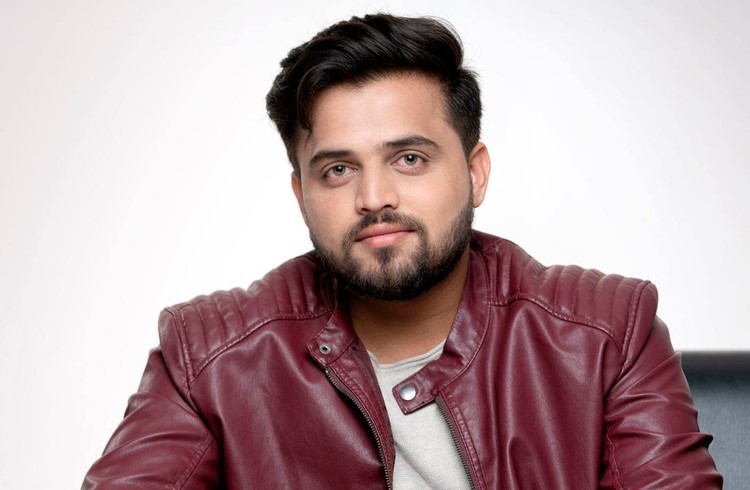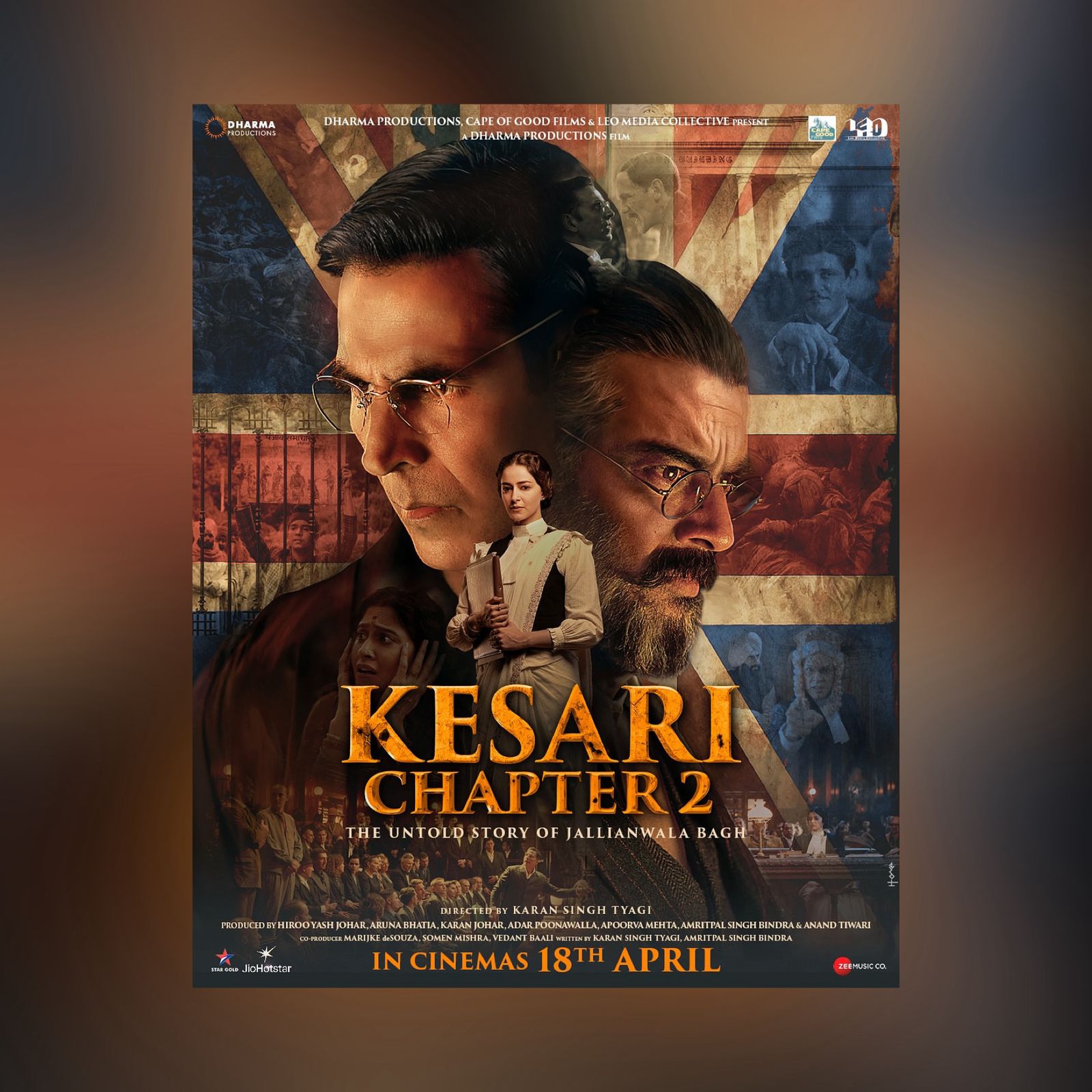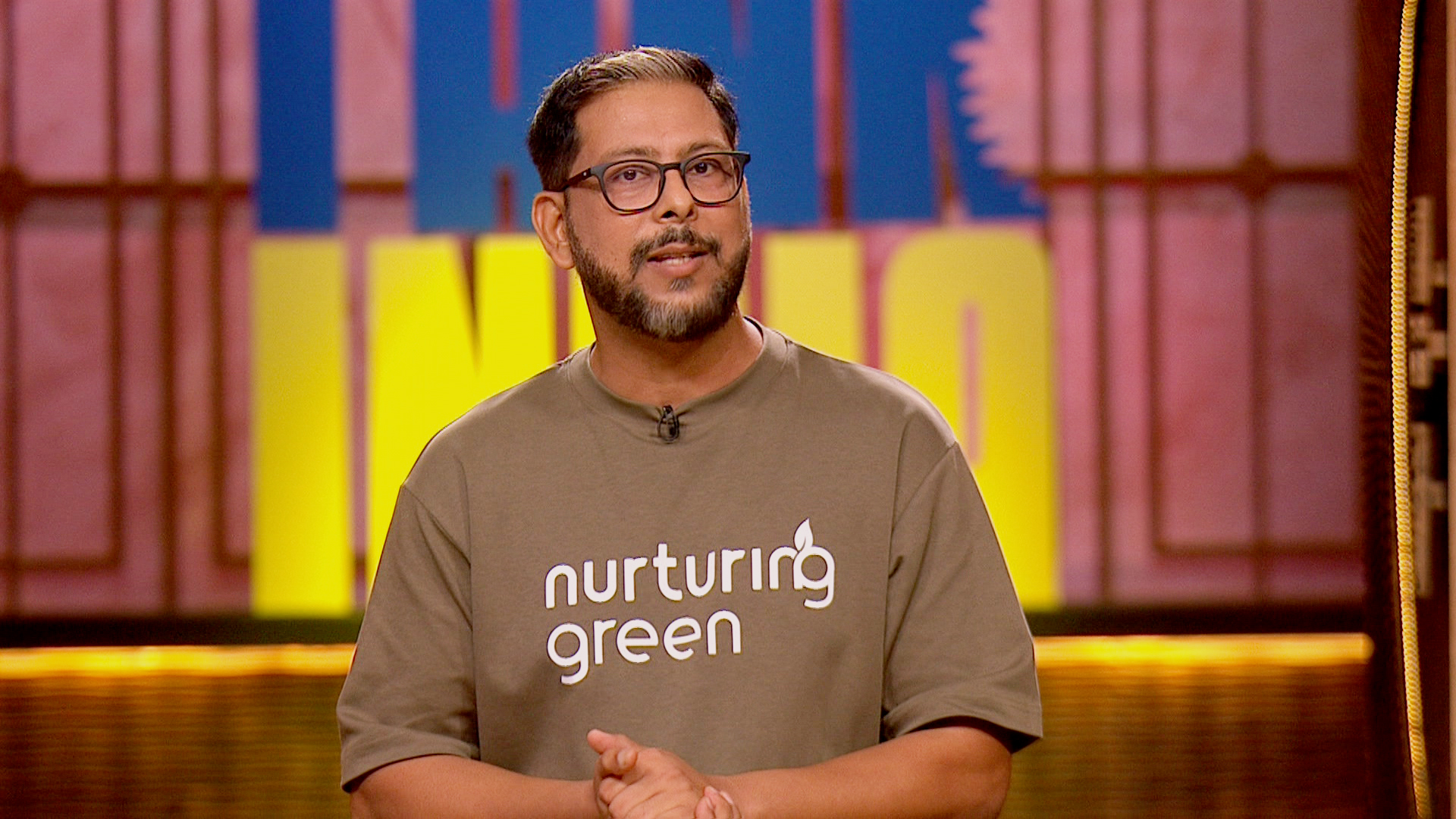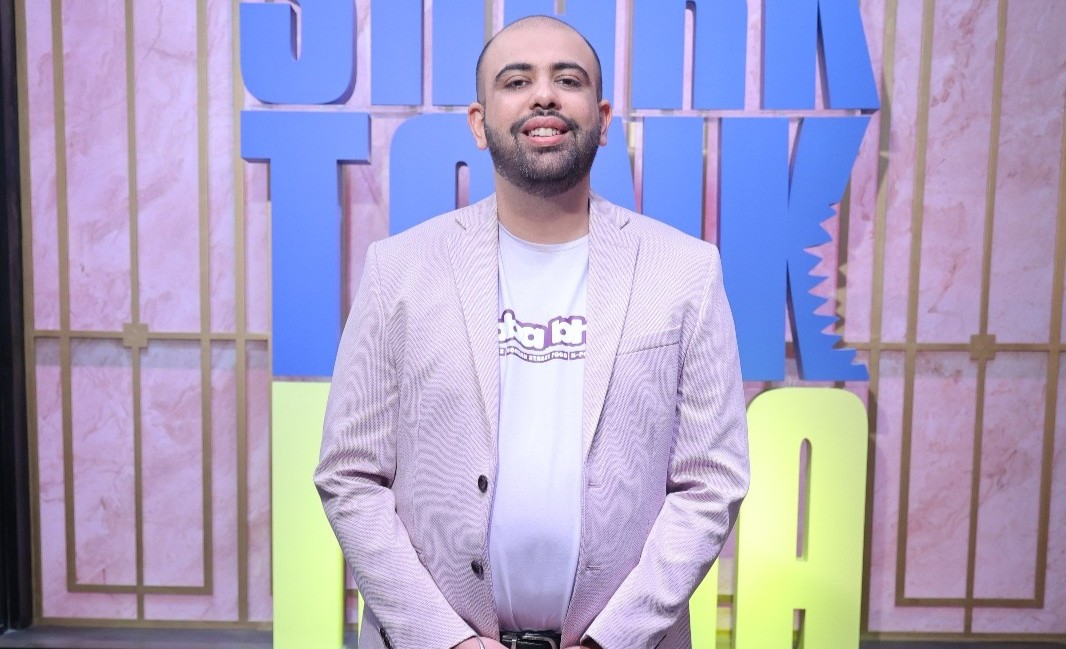
“A. R. Rahman sir’s humility is extremely inspiring” – Nakul Abhyankar
Nakul Abhyankar was a child when he discovered his love for music. While he did study mechanical engineering, he realized music is what he wanted to do all his life. While he had learnt Carnatic music as a child, the A. R. Rahman owned KM Music Conservatory familiarized him with the nuances of jazz singing. While studying at the institution, Nakul became a member of Rahman’s jazz and music band, Nafs. This started a long-standing association with the maestro.
In the last several years, Nakul has worked on several projects independently as a singer and composer. He also continues to work with Rahman on several film projects. This year, ‘Maidaan’ was one of the films Nakul collaborated with Rahman on. Nakul was one of the vocalists on the track ‘Team India Hain Hum’, which was composed by Rahman and written by Manoj Muntashir, Davinder Singh and SlowCheeta . The sports drama released in theatres a while back and just started streaming on Prime Video.
In this interview, Nakul talks about his journey in music, giving up a career as an engineer, collaborating with A. R. Rahman, upcoming projects, and more.
You have worked with A. R. Rahman on so many songs. How was the experience of working with him on ‘Team India’?
This happened all of a sudden. The day I went to his studio, sir gave me this song and asked me to produce it. I had to produce the mukhda in 1-2 hours and give it to him. He gave me his ideas on how the rhythm should be. I did that in an hour or two. He added his own colour to it. He filled it with more instruments. Then, he asked me to sing those lines. We had new lyrics that had just come in. He had to send it to the director. When the director heard it, he loved it. Initially, I was not involved in ‘Maidaan’. I was working on another Tamil film with Rahman sir. The direction team could not finalize a tune. Suddenly, this tune caught their attention and got approved. We produced the rest of the song. The song was done pretty quickly.
This is not the first time you have sung a song which was designed to be a sports anthem. You were also a part of the anthem made for Men’s Hockey World Cup in 2018.
I feel very honoured to be a part of such tracks. A while back, we re-did ‘Dhakka Laga Bukka’ (‘Yuva’) for the web show ‘Taandav’. It was also an upbeat, motivational number. Everybody can sing along such tracks.
You studied jazz singing at A. R. Rahman’s KM Music Conservatory. You became a part of his Nafs, which was a jazz and music band put together by him. After that, you started working with him on his film projects. How has been the experience of working with him?
Working with him is a very different experience. Anybody who has worked with him will tell you that his whole approach to music is different. He is so passionate about music. He pours so much love in every sound he creates and every piece of music he makes. To achieve that kind of perfection, you have to spend those many hours and a lot of energy. At the end of the day, when you see the result, you feel it was worth it.
We used to buy every cassette of his as children. His music was for everyone and it was an integral part of our lives. His music also trained us as musicians. The amount of knowledge we imbibed sub-consciously was huge. All that helped when I started working with him. When you work with a composer, you need to make something they would like or appeal to their sensibilities. I never struggled with that process as I had heard so much of Rahman sir’s music. Listening to his music since childhood has helped me in several ways. The music young musicians like me make also has traces of his music in it. Rahman sir has been one of my biggest inspirations.
Which is that one quality of A. R. Rahman you have been the most inspired by?
Rahman sir is extremely down-to-earth. His humility is extremely inspiring. He is always sensitive towards everything and everyone around him. He lives and breathes music. He has no ego about who he is and all that he has achieved. He tells us that he is just another musician who is trying to music every day. He wants to keep learning.
As a child, you used to hear your elder brother practicing music at home. Was that the point when you got drawn to music?
Yes, I was drawn to music from an early age. After completing my tenth grade, I realized I wanted to make a career in it. I started learning Hindustani classical music. Till tenth grade, I used to learn Carnatic music. My mother used to learn that. I used to listen to my elder brother practicing music. The interest kicked in a way after tenth grade.
Your family is from Maharashtra. You spent your formative years in Somwarpeth, a small town in Maharashtra. Did you have access to a lot of music then?
I don’t have a lot of memories of Somwarpeth as I was just 3 or 4 years old then when we moved out. We had a tape recorder. My parents would buy audio cassettes. Sometimes, my relatives would also get cassettes. At times, my brother would buy some. I have some faint memories of listening to music on the tape recorder back then. We went to Mangalore, I started my schooling there and studied till the fourth grade. After that, we shifted to Bengaluru I did high school for three years there. In studied 11th and 12th in Bangalore.
As a child, you heard ‘Dil Hai Chhota Sa’ from ‘Roja’ and that left a deep impact on you.
Yes! I was four years old then. My brother’s summer vacation was going on and we were coming to our native place. In the hotel, I heard the song and it got stuck in my mind. It felt very special. There was something in it which resonated with me as a four-year-old child.
You were 23 years old when you decided to quit your IT job and pursue a career in music.
It was quite an easy decision to make. I was quite frustrated and wanted to quit my job for a long time. It all started when I participated in a music reality show. I wanted to get into music for sure but I did not had the courage to quit engineering. I decided to complete my engineering course. Back then, there were no good universities to study music in India. In my final year, I applied for a course in Berklee College of Music. The fees was too high. If I had got a scholarship, I would have gone there. I worked in Bengaluru for a year after completing my engineering course. Around this time, I heard about Rahman sir’s KM Conservatory. I applied for a four-year diploma course in Western Classical music. I told my family that I want to go and study music. I believed in myself and my music. It took some convincing on my part. My brother was very supportive.
You studied engineering at the National Institute of Technology in Karnataka. How was that experience like?
I had a lot of seniors and juniors who practiced music the right way. There were guitarists, pianists, vocalists and even Carnatic classical musicians. I got exposed to a variety of music because of being around such people. I got the opportunity to listen to a lot of English music. Metallica, Iron Maiden and Porcupine Tree were some of the bands I heard extensively during this period. I heard a lot of progressive rock and metal. As a child, I was mostly exposed to Bollywood music. Suddenly, I heard so much music and felt highly inspired. In the engineering college, I spent most of my time around music.
Your mother tongue is Marathi. You grew up in Karnataka. Do you find it easy to adapt to different languages?
Marathi is my mother tongue. Learning Hindi was easy for me. I learnt English in school. Because of the Dravidian side, I learnt Kannada and Tulu. While living in Mangalore, I learnt Konkani. Once I came to Chennai to study music, I learnt Tamil. All this helped me in neutralizing my accent. An individual who knows only one or two languages will have a strong accent of his mother tongue. By the time I was in the third or fourth grade, I had learned 5-6 languages. That helped me speak in multiple languages in a neutralized accent. My dad worked in a bank and we kept moving from one city to another. I have seen a lot of singers struggle to sing in languages they are not comfortable in. I didn’t have that problem.
You have been a composer, singer, music producer and sound designer. How has working in different departments of music helped you as an artist?
A singer, a composer and an arranger look at a song differently. Working in different capacities has helped me enhance my musicality. It also helps you have different perspectives and enables you to emote better. At the end of the day, all of it is music. I am primarily trained in vocals. I love composing and producing as well. I didn’t want to be called a singer or a composer. I wish when my name comes up somewhere, people say that he is a good musician. That is my aim.
The first feature film you composed music for was a Kannada film called ‘Unarvu’. Do you plan to compose for Hindi films in the future?
I am already working on a Hindi film. It should come out in a couple of months. It is a love story. I am planning to create and release some music independently this year. I have started creating the material for it. By the end of this year, a lot of music would come out.
Do you find it easy to juggle between so many things?
It is like switching from a pizza to a dosa. I do not face any difficulty as such. In everything I do, it is my personality that comes in.
Publisher: Source link


